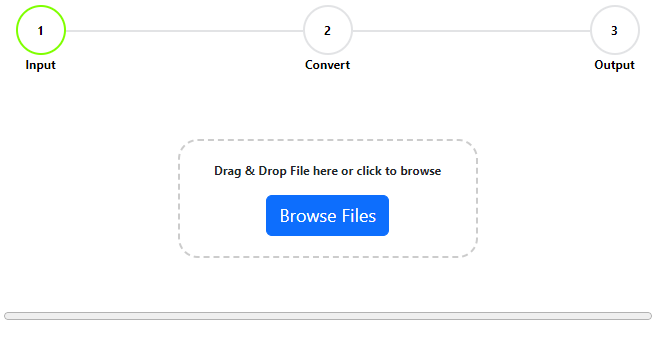What kinds of Jobs can you get with a Degree in Geography
You would be mistaken if you thought geography was solely about the study of the physical environment, and the interactions of the air, land and water. Geography is actually a very broad field, spanning the understanding of cultures, politics, landscapes, and environments all around the world.
Pursuing a geography degree can lead you into a variety of career paths, some clearly apparent, some less so. Even the former Prime Minister of the UK, Theresa May, holds a degree in geography. One thing is for certain, anyone with a curious nature will surely be drawn to a geography degree. But why geography? What’s the incentive? What kind of real-world jobs can you expect to get with a geography degree?
Why Study Geography?
Choosing to study geography means continued learning about the people, systems, and world around us, and observing and understanding these dynamics. Through a geography degree you’ll be helping to solve some of the world’s biggest challenges — desertification, urban flooding, biodiversity loss, and sustainable development.
If you’re concerned that a degree as broad as geography won’t lead you to a distinct career path, you can, and should, specialize. Specialize in physical geography and develop urban flood mitigation plans. You could specialize in social geography and tackle inequality and affordable housing. Alternatively, if you’re driven by new technologies, a specialization in GIS, land management, or remote sensing could lead to exciting new things.
Doing a geography degree won’t lead to boring endeavors, you may just find yourself at the forefront of geospatial technology development. The skillsets developed in this field are diverse and can carry over to other industries.
Possible Career Paths for Geographers
As you’re about to find out, the career paths a geography graduate can take are diverse and flexible. The reason being is that a geography degree teaches how to collect, analyze, and communicate a wide range of data. Integrating information gathered from the physical environment, but also the social and cultural dynamics in society. Universities around the world report graduates going into any of the following roles:
GIS Specialist:
Any geography graduate with GIS skills could move into a career as a GIS Specialist. Whether that’s as a GIS technician, remote sensing operator, analyst, or administrator role. However, additional computer science-based skills would be beneficial in landing one of these roles. Some GIS jobs are highly paid and are great for someone with a drive for continued study, and a passion for using technology for good.
Urban Planner:
A geography background is almost essential to a career as an urban planner. An urban planner will combine an understanding of social behavior, population growth, existing resources and facilities, transportation use, and the environment. Through this they can plan city redevelopments, or new developments that lead to a safe, sustainable city for all. Often, these roles demand a master’s degree in urban planning, but there are still options available for someone with a Bachelors and the right experience or portfolio.
Conservation Officer:
Geography can be a really good starting point for a career in conservation. You’ll be able to apply your knowledge of the effect of human activities on the wider ecosystem and natural processes. More importantly, you’ll also identify and communicate effective mitigation strategies within communities. However, it’s likely a geography degree will need to be paired with extra qualifications — like a masters or graduate certificate in biology or zoology.
Landscape Architect:
Landscape architecture is much more than designing pretty gardens. As a landscape architect, you will be required to reinvent and design a space to fit the needs of people, but also find balance with the environment. A geography degree straddles this exact role — developing a plan of action and a needs analysis, to establish how to create the desired landscape. However, additional study in design and architecture will likely be needed.
Sustainability Consultant:
Sustainability consultants primarily work with companies and corporations to lessen their environmental impact. This requires keen observation, organizational, and analytical skills, which you will develop through a geography degree. This, combined with communication skills, makes geography graduates common in the field of sustainability consulting.
Cartographer:
The link between a geography degree and a career as a cartographer is quite clear. Cartographers need to have a strong knowledge of geography as well as GIS skills, as cartography is essentially all computer based these days. Artistic or digital design skills can also be a good, and necessary, addition to a cartographer’s skillset. Cartography provides a nice balance between science, creativity and scientific communication — the latter of which is continually growing in importance.
Environmental Scientist:
Environmental science and geography go hand in hand, in many cases the two degrees are closely linked and share many common courses. However, a straight geography degree can be a really good foundation for a career as an environmental scientist. You’ll be able to find solutions to human induced problems, using the observational, analytical and critical thinking skills acquired during your degree. Naturally, depending on which specific field of environmental science you choose, you’ll likely need to specialize with further study.
Climatologist:
Being a climatologist is a step further than being an environmental scientist. You will need to complete additional study in climate science, but a background in geography is a great starting place. From your geography degree you gain a broad understanding of the earth’s processes and handling environmental data, which you’ll need for your role as a climatologist. A climatologist may be involved in the collecting and analyzing of complex sets of climate data, as well as communicating the results.
Political Risk Analyst:
Many of the jobs mentioned have been strongly linked to the environmental field. However, geography graduates have been known to pursue some seemingly out-of-left-field careers. A political risk analyst is one of these. While it may seem odd, the skills gained in understanding human demographics and socioeconomic trends are a perfect match. Leveraging GIS skills to make maps and conduct analysis of various districts is highly valuable for political think tanks, firms, and campaigns.
Emergency Management:
In a role within emergency management and disaster response, you’ll be responding to a variety of natural disasters. This implies a strong understanding of environmental processes, and the ability to adapt and plan quickly. You may need to apply geospatial mapping skills, or plan evacuation centers and safe passage. A geography degree will certainly benefit those wishing to progress with a career in emergency management.
Click here to learn a bit more about how GIS is used in Emergency Management
International Development:
Having a career in international aid and development means you’ll be using your skills set to plan development strategies at home or abroad. You’ll have to navigate working in difficult political and social contexts, and apply critical thinking to high stakes situations. You will be putting your analytical skills to good use, for example, finding ways to improve the efficiency of aid distribution or safe transport corridors.
School Teacher:
Paired with a teaching certification or degree, you can quite easily go onto become a school geography teacher. Teaching isn’t as bad as many people believe. A career as a teacher offers both a rewarding career, and work life balance perks. In many countries (not all) teachers are paid fairly well and receive more holiday time than many other jobs. While teaching can be challenging, and at times stressful, it is often reported to give great job satisfaction.
Internships and Volunteering: Are They of Value?
There are many fantastic organizations to intern or volunteer with in order to gain experience or begin to build a professional network. Volunteering or completing an internship also gives the added benefit of being able to ‘test drive’ a role to see if it’s a good fit.
Perhaps you’re unsure if it’s the career path for you, an internship will help you make a calculated decision as to whether this is a career path you want to follow. Then you can agree to continue investing in the skills required for that career path.
What Next?
So, you’ve decided, or at least narrowed down the career direction you want to head in. What’s next?
It’s clear that a geography degree leads to a broad range of career options and will give you a bunch of valuable job skills. However, it’s also clear that nine times out of ten, you’ll also need some supplementary skills or qualifications.
It’s worth identifying early what these additional skills and qualifications might be. Then you can make a plan to start acquiring these through post graduate study, self-paced study, or work experience. Put yourself out there, build a solid professional network, and always keep learning.
Need more mentorship or career advice? Listen to our podcast episode with Denise McKenzie, talking about her career path in geospatial.





